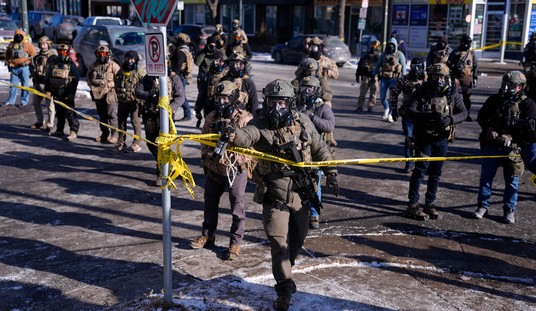Originally, I planned to include this in the post about the CNN poll, but it deserves a stand-alone post for its insight into the assumptions of the White House strategic plan to deal with Syria. Ben Rhodes, the deputy national-security adviser to Barack Obama and a public face on the push for military strikes against Bashar al-Assad,tells CNN this morning that military strikes on Assad won’t lead to any retaliation at all, because it’s not in Assad’s interest to answer back for an act of war:
Ben Rhodes, White House Deputy National Security Advisor for Strategic Communication & Speechwriting, appeared on “New Day” to talk to Anchor Chris Cuomo about the administration’s case for military action in light of new CNN/ORC poll that shows a majority of Americans are against military action whether or not Congress approves the resolution. Rhodes also confirmed that there is “no doubt” that Assad is responsible for the use of chemical weapons, and said that the President of Syria has no interest to retaliate, as the United States is “prepared for any contingency.”
“It’s simply not in anybody’s interest to invite further strikes from the United States by doing anything,” Rhodes said. “We’re going to make it very clear; we’re prepared for any contingency. Our military can handle whatever comes at us. But the fact of the matter is, we don’t think it’s in the interest of Assad or any of his allies in the region to… test the resolve of the United States by doing something after we take this strike.”
Of course, that’s what the White House hopes, and it’s the central conceit behind John Kerry’s repeated exhortations that the US isn’t declaring war on Syria. It’s not that bombing a country that hasn’t attacked us or threatened our interests isn’t an act of war, which of course it is. It’s that the Obama administration is just betting that Assad takes his lumps rather than risk a bigger American intervention.
That is a very large assumption, however, and Rhodes’ own argument undermines it. Syria has a close relationship with Hezbollah, a terrorist network that is certainly capable of attacking American interests in the region without getting Assad’s hands too dirty, and with Iran, which is building nuclear weapons for just such a fight. Iran has already been caught planning a retaliation against our embassy in Baghdad, and that’s hardly the only target they can reach.
Furthermore, Assad seems to have regained the momentum in the civil war, or at least blunted that of the rebels, who have grown more divided and disorganized by all accounts. The biggest threat to Assad’s survival at the moment is Western intervention, which removes any deterrence from retaliating after military strikes that are strong enough to damage his ability to control the country. Here again, the lesson of Libya comes into play as a cautionary tale for dictators that don’t respond to outside attack. Assad has no intention of meeting the same fate as Moammar Qaddafi, even if the US seems to want the same end result — a failed state. At that point, it’s very much in Assad’s interest to widen the war so as to bring Russia and perhaps China into the conflict, and probably Israel and Iran, too, which a larger American intervention would almost certainly do.
The White House might win this bet, but it’s much more of a gamble than Rhodes, Kerry, and the Obama administration are admitting. And clearly, it’s a gamble on which most Americans don’t want to double down.







Join the conversation as a VIP Member